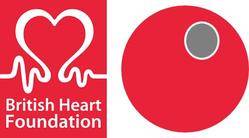Investigating the Influence of Hierarchical Topographical Features on Angiogenesis

This multifaceted programme of research is funded by the British Heart Foundation and involves investigating novel biomaterial-based approaches for therapeutic angiogenesis. The unique surface topography of biodegradable and biocompatible TIPS microparticles is being utilized for its angiogenic potential, both alone and in combination with cells including mesenchymal stromal cells and pericytes. If successful, the novel approach could be used as a curative treatment for life-threatening diseases such as coronary heart disease and peripheral arterial disease.
People involved:
Professor Richard Day
Dr Charikleia Simitzi
Dr Caroline Pellet-Many (Royal Veterinary College)
Professor Paolo Madeddu (Section of Regenerative Medicine, University of Bristol)
Redefining iPSC-Derived Cardiomyocyte Delivery using a Pro-Survival Substrate

Ischaemic heart disease is a global health issue. Myocardial ischaemia is of particular significance, resulting in the irreversible and extensive loss of cardiomyocytes. Cell therapy provides a potential therapy for cardiac muscle regeneration and various teams around the world are attempting to utilise cell-based strategies for this purpose. However, loss of cell viability and retention of cells following delivery into the myocardium poses a significant challenge that risks reducing potency of the therapy.
This BHF-funded project is a collaboration with Dr Sanjay Sinha's lab at the University of Cambridge and builds on preliminary studies that show TIPS microparticles provide a potential substrate for attachment and growth of cardiomyocytes derived from induced pluripotent stem cells (iPSC). The aim of the project is to investigate the use of TIPS microparticles for targeted delivery of iPSC-derived cardiomyocytes into cardiac tissue to improve cell viability and engraftment for myocardial regeneration.
People involved:
Professor Richard Day
Annalisa Bettini
Dr Daniel Stuckey, UCL Division of Medicine
Dr Maria Colzani (Anne McLaren Laboratory, Cambridge Stem Cell Institute, University of Cambridge)
Dr Sanjay Sinha (Anne McLaren Laboratory, Cambridge Stem Cell Institute, University of Cambridge)
 Close
Close

